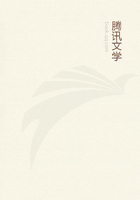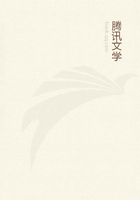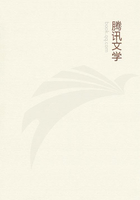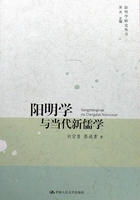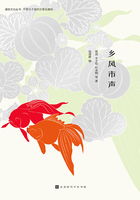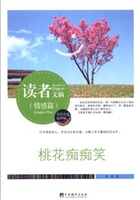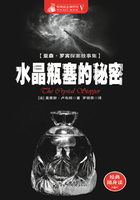One has but to open the door to any forces of exhibition at all worthy of the name in order to see the imaging and qualifying agency called at once into play and put on its mettle. We may traverse acres of pretended exhibitory prose from which the touch that directly evokes and finely presents, the touch that operates for closeness and for charm, for conviction and illusion, for communication, in a word, is unsurpassably absent. All of which but means of course that the reader is, in the common phrase, "sold"--even when, poor passive spirit, systematically bewildered and bamboozled on the article of his dues, he may be but dimly aware of it. He has by the same token and for the most part, I fear, a scarce quicker sensibility on other heads, least of all perhaps on such a matter as his really quite swindled state when the pledge given for his true beguilement fails to ensure him that fullest experience of his pleasure which waits but on a direct reading OUT of the addressed appeal. It is scarce necessary to note that the highest test of any literary form conceived in the light of "poetry"--to apply that term in its largest literary sense--hangs back unpardonably from its office when it fails to lend itself to viva-voce treatment. We talk here, naturally, not of non-poetic forms, but of those whose highest bid is addressed to the imagination, to the spiritual and the aesthetic vision, the mind led captive by a charm and a spell, an incalculable art.
The essential property of such a form as that is to give out its finest and most numerous secrets, and to give them out most gratefully, under the closest pressure--which is of course the pressure (xxiv) of the attention articulately SOUNDED. Let it reward as much as it will and can the soundless, the "quiet" reading, it still deplorably "muffs" its chance and its success, still trifles with the roused appetite to which it can never honestly be indifferent, by not having so arranged itself as to owe the flower of its effect to the act and process of apprehension that so beautifully asks most from it. It then infallibly, and not less beautifully, most responds; for I have nowhere found vindicated the queer thesis that the right values of interesting prose depend all on withheld tests--that is on its being, for very pity and shame, but skimmed and scanted, shuffled and mumbled.
Gustave Flaubert has somewhere in this connexion an excellent word--to the effect that any imaged prose that fails to be richly rewarding in return for a competent utterance ranks itself as wrong through not being "in the conditions of life." The more we remain in THEM, all round, the more pleasure we dispense; the moral of which is--and there would be fifty other pertinent things to say about this--that I have found revision intensify at every step my impulse intimately to answer, by my light, to those conditions.
All of which amounts doubtless but to saying that as the whole conduct of life consists of things done, which do other things in their turn, just so our behaviour and its fruits are essentially one and continuous and persistent and unquenchable, so the act has its way of abiding and showing and testifying, and so, among our innumerable acts, are no arbitrary, no senseless separations. The more we are capable of acting the less gropingly we plead such differences; whereby, with any capability, we recognise betimes that to "put" things is very exactly and responsibly and interminably to do them. Our expression of them, and the terms on which we understand that, belong as nearly to our conduct and our life as every other feature of our freedom; these things yield in fact some of its most exquisite material to the religion of doing. More than that, our literary deeds enjoy this marked advantage over many of our acts, that, though they go forth into the world and stray even in the desert, they don't to (xxv) the same extent lose themselves; their attachment and reference to us, however strained, need n't necessarily lapse--while of the tie that binds us to THEM we may make almost anything we like. We are condemned, in other words, whether we will or no, to abandon and outlive, to forget and disown and hand over to desolation, many vital or social performances--if only because the traces, records, connexions, the very memorials we would fain preserve, are practically impossible to rescue for that purpose from the general mixture. We give them up even when we would n't--it is not a question of choice. Not so on the other hand our really "done" things of this superior and more appreciable order--which leave us indeed all licence of disconnexion and disavowal, but positively impose on us no such necessity. Our relation to them is essentially traceable, and in that fact abides, we feel, the incomparable luxury of the artist. It rests altogether with himself not to break with his values, not to "give away" his importances. Not to BE disconnected, for the tradition of behaviour, he has but to feel that he is not; by his lightest touch the whole chain of relation and responsibility is reconstituted.
Thus if he is always doing he can scarce, by his own measure, ever have done. All of which means for him conduct with a vengeance, since it is conduct minutely and publicly attested. Our noted behaviour at large may show for ragged, because it perpetually escapes our control; we have again and again to consent to its appearing in undress--that is in no state to brook criticism. But on all the ground to which the pretension of performance by a series of exquisite laws may apply there reigns one sovereign truth--which decrees that, as art is nothing if not exemplary, care nothing if not active, finish nothing if not consistent, the proved error is the base apologetic deed, the helpless regret is the barren commentary, and "connexions" are employable for finer purposes than mere gaping contrition.
HENRY JAMES.

